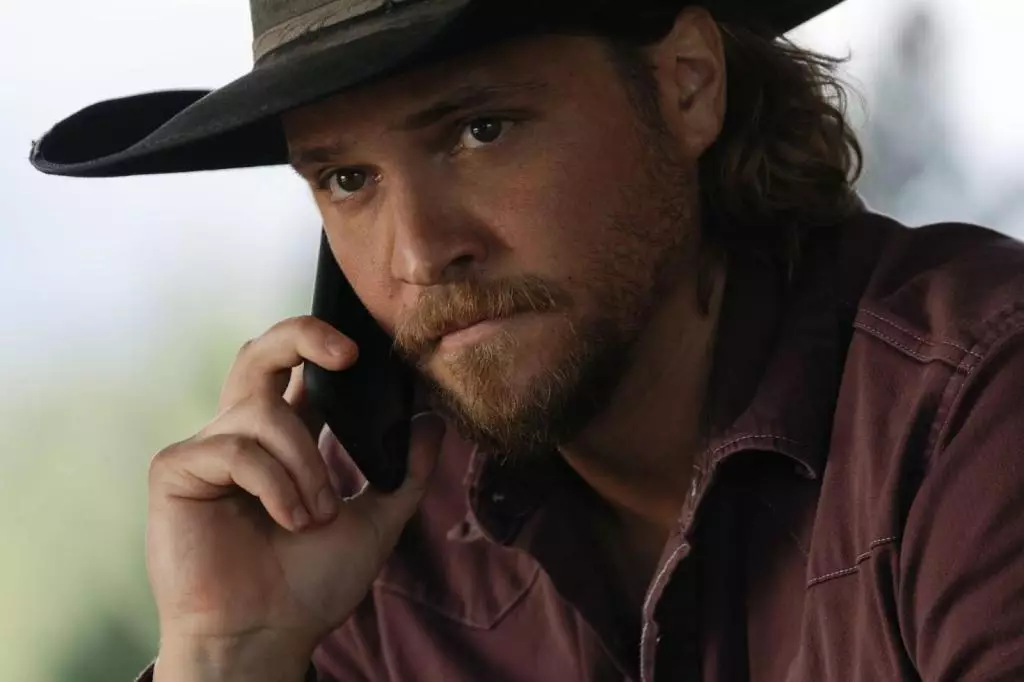The compelling drama of ‘Yellowstone’ continues to unravel emotional complexities and familial strife as it progresses toward its thrilling conclusion. The episode titled “Counting Coup” highlights the drastic shift in character dynamics, particularly focusing on Beth Dutton’s transformative arc and the weight of John Dutton’s death on those he left behind. This chapter serves as a stark reminder of the lingering effects of trauma, with visceral moments that reveal the heart of the Dutton family legacy—themes of love, loss, and vengeance intertwining amid a backdrop of harsh realities faced by modern cowboys.
Beth Dutton, portrayed by Kelly Reilly, emerges as a paradox—a fierce protector of the Dutton legacy whose confrontational nature seldom allows for vulnerability. However, in “Counting Coup,” the audience observes a shift; Beth adopts a nurturing persona, suggesting that beneath her hardened exterior lies a depth of emotional fragility that necessitates healing. Her quote, “When I find myself in the position of therapist, this family’s fucked,” epitomizes the turmoil that roils within her family unit. It underscores the complexities of family dynamics shaped by trauma—an emotive acknowledgment that emotional wounds can riddle even the most seemingly invulnerable individuals.
The episode artfully depicts how John Dutton’s death reverberates throughout the lives of those tied to the ranch. While Beth wrestles with her new role surrounded by chaos, characters such as Colby and Rip exhibit their own avenues of grief. Rip’s quiet sorrow is palpable when he informs his friend Travis about John’s passing, highlighting the distant but significant relationships forged in the high-stakes world of ranching. Each character laces their grief with personal narratives of loyalty, memory, and a fierce drive to honor John’s legacy, showcasing the resilience born from shared suffering.
While Beth offers emotional support to the ranch’s staff, Jamie Dutton’s presence—a character burdened by choices that epitomize betrayal—casts an ominous shadow. As the Montana Attorney General, Jamie’s tangled loyalties become evident during a tense encounter with police detectives investigating the murder of Sarah, the Market Equities lawyer involved in schemes that ultimately engulf the Dutton family. His defensive stance, the shredding of incriminating documents, and his insistence on legality encapsulate his insidious role within the chaotic fold of familial loyalty. This moment shines a light on an overarching theme: how notions of loyalty can swiftly shift into betrayal, especially within a family bound by historical grievances and painful legacies.
Amidst Jamie’s treachery, “Counting Coup” also paints a stark visual of loss with catastrophic undertones. The tragic death of Colby, a devoted member of the ranch community who pays the ultimate price in trying to save young Carter from an irate horse, is a pivotal moment. Colby’s demise reverberates as a narrative device illustrating how camaraderie is interwoven with dire consequences. Rip’s guilt weighs heavily, leading to further exploration of the repercussions of neglect, choice, and fate.
As Kayce Dutton ventures down a darker path fueled by revenge, the surfacing of his complex relationships adds another layer to the episode. Kayce’s confrontation with Grant—the man behind John Dutton’s murder—demonstrates the internal battle between justice and vengeance. The symbolism inherent in his actions, trained on Grant’s daughter with a machine pistol, serves both as a harrowing display of paternal instinct veiled in violence and a moment of reckoning with the traumatic legacy of their family crimes. This sequence highlights the internal conflict facing the characters as they wade through a mire of morality, showcasing the extremes each is willing to go to honor their own versions of loyalty to John Dutton.
In the end, “Counting Coup” emphasizes the external struggles of survival against the unforgiving landscape of ranch life alongside the internal struggles of emotional endurance. The final moments—where a dead horse is left to serve as a snack for wolves—symbolically manifest the vulnerability of the Dutton lineage, illustrating the hierarchy of nature and the web of life and death at play. Ultimately, the episode serves not just as a thrilling chapter in the ‘Yellowstone’ narrative but also presents a poignant meditation on familial bonds shaped by trauma, the pursuit of justice, and the indelible scars left behind in the wake of loss.

Leave a Reply